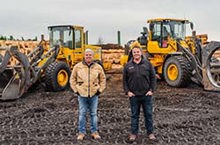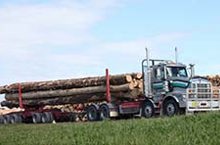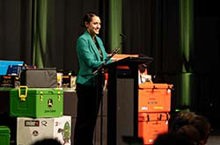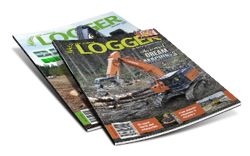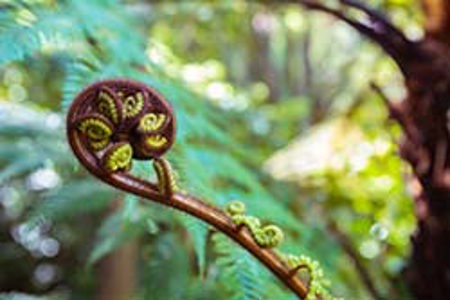
Conventional seed banking alone isn’t enough to conserve all of Aotearoa’s endemic plants, says Dr Sarah Wyse, who lectures in the School of Forestry at Te Whare Wānanga o Waitaha|University of Canterbury (UC).
She says protection of te taiao (the environment) is the first line of defence for plant conservation with the preservation of native plant species in artificial seedbanks – known as ex situ conservation — as an important back-up.
Her team’s research shows that about 80% of New Zealand’s woody plant species can be successfully preserved using conventional seed banking, in which seeds are dried and frozen for long-term storage. This accessible process can be undertaken by conservation groups and citizen scientists outside of laboratory settings as it doesn’t require specialised equipment or expertise. However, seed from some plants – particularly New Zealand’s tall forest trees, with large bird-dispersed seeds - can’t be successfully conserved in this way.
“Tropical rainforest seeds shed while they’re metabolically active so they can germinate quickly, but this makes them more problematic as you can’t dry or freeze them,” says Dr Wyse. “New Zealand has a number of trees closely related to tropical rainforest species, and these are the ones that may prove tricky.”
Conservation of these seeds requires more complicated techniques such as cryopreservation, in which the seed embryo or other plant tissues are stored in liquid nitrogen. Currently, little is known about how to perfect that process for our native seeds.
She says some of the forest taonga (treasures) that may pose difficulties for artificial seedbank conservation include dominant canopy trees such as rimu, kohekohe, swamp maire, kahikatea, tōtara and kauri. As these species face additional threats from predation, pollinator extinction, climate change, and pathogens like myrtle rust and kauri dieback, effective ex situ conservation is critical.
While gaps in existing knowledge are concerning, Dr Wyse says she is encouraged by the number of organisations committed to seed conservation. In Canterbury, this includes Māori biosecurity initiative, Te Tira Whakamātaki, which brings significant mātauranga (Māori knowledge) to the field. She also notes a growing interest in seedbanks from arboretums and botanical gardens.
Dr Wyse’s research, co-authored with Thomas Carlin, Thomas Etherington, Aisyah Faruk, John Dickie, and Peter Bellingham, is published in the journal Pacific Conservation Biology. Research was funded by a grant from the Ministry of Business, Innovation and Employment through New Zealand’s Biological Heritage National Science Challenge.

